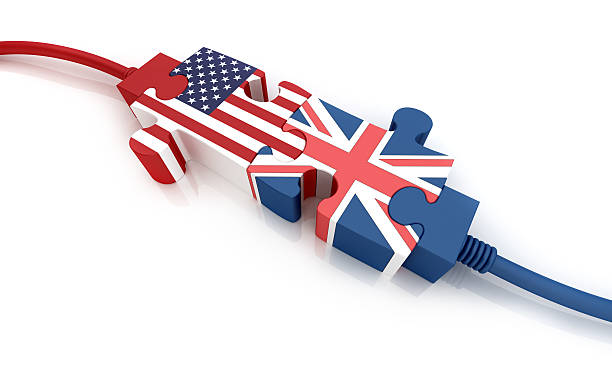The UK’s ambassador to Washington, Lord Peter Mandelson, has called for a new US-UK technology partnership to prevent China from gaining dominance in critical fields such as artificial intelligence, quantum computing, and biotechnology.
Speaking at Ditchley Park in Oxfordshire on Saturday, Mandelson compared the proposed agreement to Cold War treaties that cemented Britain’s close security ties with Washington. He warned that if China achieved technological supremacy, it would shape “every facet of our lives.”
“Only America has the capability, wealth and determination to compete with China technologically,” he said. “We must combine the formidable assets at our joint disposal to win the race against Beijing.”
Strategic Pact Under Discussion
London hopes to sign a memorandum of understanding with Washington when US President Donald Trump visits the UK later this month. While details remain scarce, officials say the agreement would build “complementary partnerships” across AI, quantum computing, defence innovation, and civil nuclear energy.
Mandelson argued the pact should carry the same weight as the 1958 Mutual Defence Agreements, which deepened nuclear cooperation between the two nations after the Soviet Union launched Sputnik. “The Atlantic alliance must evolve to meet the greatest challenge of our age: keeping ahead in the global technology race,” he said.
Brexit, Regulation and US Pressure
Since Brexit, the UK has sought to balance closer ties with both Washington and Beijing. Britain recently became the first country to sign a “liberation day” tariff reduction deal with the US, giving it discounts on cars and steel if it excludes China from key supply chains.
Mandelson did not clarify whether the upcoming technology pact would require Britain to follow US restrictions on Chinese involvement in areas such as autonomous vehicles and mobile telecommunications. However, he stressed that the UK must avoid adopting overly strict regulations like the EU’s AI Act, arguing they risk stifling innovation.
The Trump administration has already warned both the EU and UK of possible tariffs if they maintain rigid tech taxes and online regulations. Mandelson suggested Britain, squeezed between the competing regulatory powers of the US, EU, and China, must use its post-Brexit freedom to embrace a more open, US-style system.
Balancing Collaboration with Competition
UK officials maintain that Mandelson’s sharp framing of the tech race with Beijing is compatible with government policy, which allows for cooperation with China in non-sensitive areas while competing in strategic sectors. But Prime Minister Sir Keir Starmer soon faces a test over whether to allow a major Chinese wind turbine manufacturer to supply North Sea wind farms, a deal that has drawn US objections.


